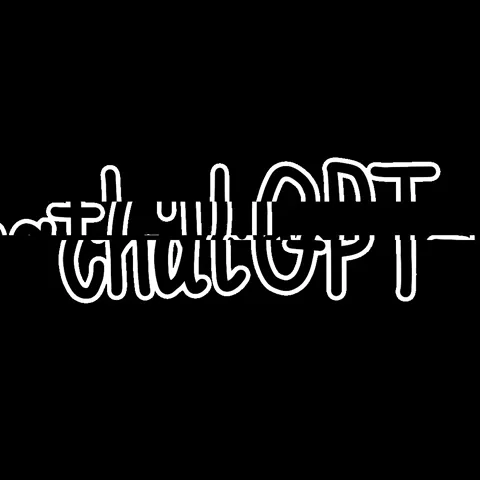
This logo isn't an ad or affiliate link. It's an organization that shares in our mission, and empowered the authors to share their insights in Byte form.
Rumie vets Bytes for compliance with our
Standards.
The organization is responsible for the completeness and reliability of the content.
Learn more
about how Rumie works with partners.
Want to understand how governments work or what's behind political debates? Imagine chatting with an AI that can explain all that to you anytime!
ChatGPT is a smart AI tool that breaks down political topics into easy-to-understand conversations. Whether it’s about election processes or major global events, it has answers.

Using ChatGPT helps make learning about political science easy and interesting. Ask smart ChatGPT prompt questions to discover amazing things about politics.
Choose a Topic: Narrow Your Focus

Focus area: Start by picking a specific area of political science you're interested in. This could be political theory, international relations, public policy, or comparative politics.
Example: If you're curious about international relations, you might ask, "What are the key differences between realism and liberalism in international relations?"
By focusing on one area, you can dive deeper and ask more detailed questions with ChatGPT prompts, helping you understand complex ideas more easily.
Design Effective Prompts
Creating good prompts is key to getting useful answers from ChatGPT. Here’s how to make your prompts clear and engaging:
Be specific: The more specific your ChatGPT prompt, the better the answer. Instead of asking "What is democracy?" you might ask, "How does democracy differ from other forms of government?"
Ask open-ended questions: These types of questions encourage detailed responses. For example, instead of asking "Did democracy originate in Greece?" ask "What role did ancient Greece play in the development of democratic systems?"
Include context: Giving a little background in your ChatGPT prompt can lead to more tailored answers. You could ask, "Considering the Cold War, how did political theories like realism and liberalism influence international relations?"

Examples of Effective ChatGPT Prompts

French Revolution: "Explain the main causes of the French Revolution and its impact on European politics."
This prompt helps you understand both why the revolution started and how it changed Europe, giving you a complete picture of its importance.
U.S. electoral system: "What are the key features of the U.S. electoral system, and how do they influence election outcomes?"
It makes you think about how the rules of elections can affect who wins, helping you see the link between rules and results.
Human rights policies: "Discuss the evolution of human rights policies in international relations since World War II."
This prompt encourages you to explore how countries have treated human rights over time, connecting history with today’s issues.
Create Interactive Learning Through Prompts
To make your learning more interactive and engaging, try using ChatGPT prompts that push for deeper conversation. Here are some ways to do it
Debate a topic: Challenge ChatGPT by asking it to take a stand on a political issue. For example, you could say, "Defend the idea of lowering the voting age to 16."
Summarize viewpoints: Get a quick overview of different perspectives on a topic. You could ask, "Can you summarize the main arguments for and against climate change policies?"
Simplify complex ideas: If you're struggling to understand a complicated concept, ask ChatGPT to break it down. A prompt like, "Explain the concept of socialism in simple terms," can make tough topics more accessible.

ChatGPT Prompts Quiz: Democracy
Which question helps ChatGPT give a detailed comparison of political systems?
A. "What does democracy mean?"
B. "Can you compare direct democracy and representative democracy? What are the good and bad points of each?"
C. "List countries that use democracy."
D. "Who started democracy?"
Quiz
Choose the correct answer:
This question prompts ChatGPT to explain and compare two types of democracy, helping you understand the differences and their impacts.
Tips for Reliable and Continuous Learning
To improve your understanding and verify the accuracy of information:
Check facts: Compare ChatGPT’s answers with reliable sources such as major news outlets or official documents.
Read widely: Expand your knowledge by reading reputable news, academic articles, and books.
Take online courses: Explore political science courses on platforms like Coursera or Udemy.
Ask more: Keep asking ChatGPT detailed follow-up questions to deepen your understanding.

ChatGPT Prompts Quiz: Climate Change
You're using ChatGPT to research the effects of climate change policies in various countries. ChatGPT provides you with a detailed explanation, but you want to ensure the information is accurate and comprehensive.
Which step should you take next to verify and expand your understanding of the topic?
A. Accept ChatGPT’s response as the final answer and complete your project.
B. Post ChatGPT’s response on social media to see if others agree.
C. Compare the response from ChatGPT with data from reputable sources like scientific journals and government reports on climate change.
D. Rewrite the response in your own words without checking any sources to make sure it sounds right.
Quiz
Choose the correct answer:
This step is essential for verifying the accuracy of information and deepening your understanding of complex issues by consulting trusted sources.
Take Action

Use ChatGPT prompts effectively to find the answers you're looking for on political topics:
This Byte has been authored by
Qusai Tweissi
Student
MA